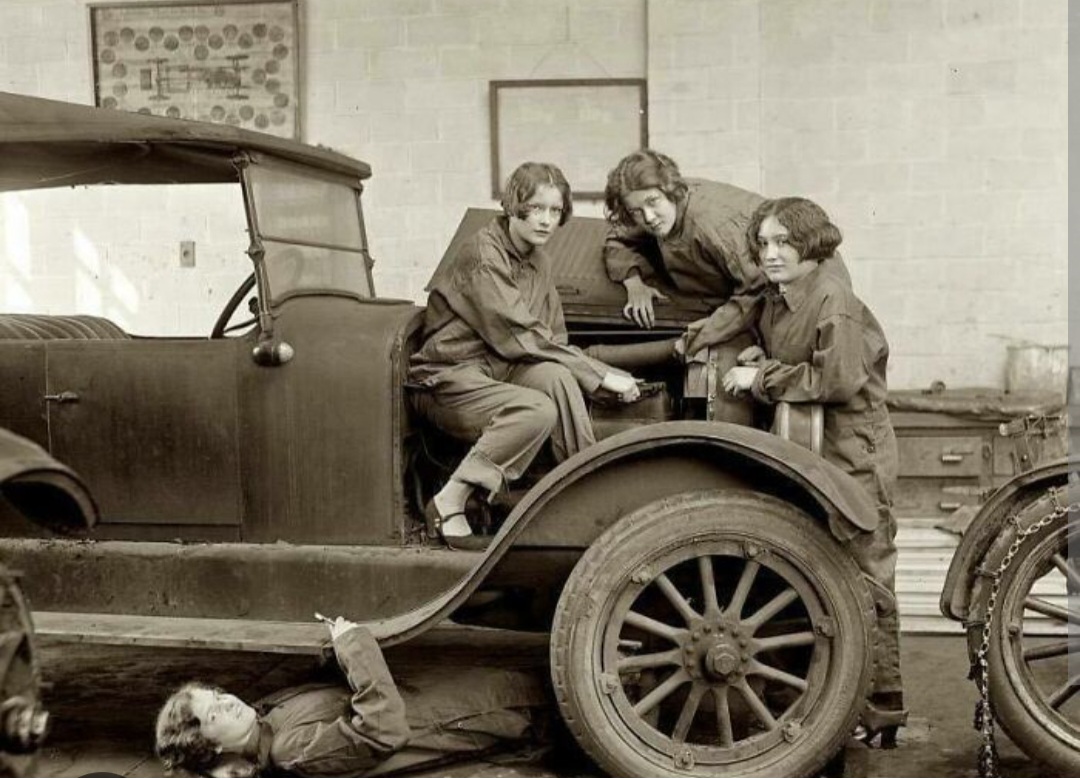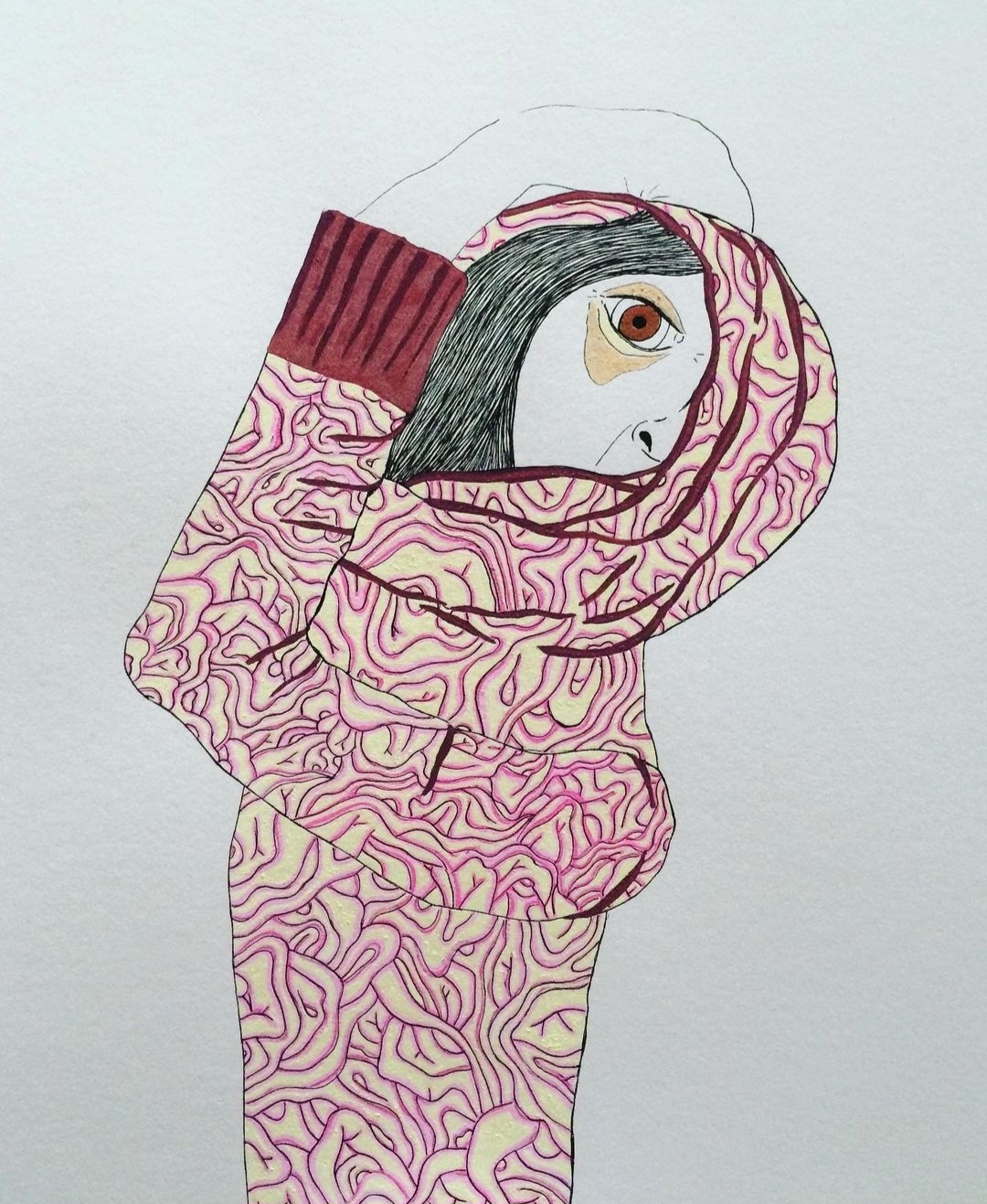They used to use urine to tan animal skins, so families used to all pee in a pot & then once a day it was taken & sold to the tannery. If you had to do this to survive you were “piss poor.” But worse than that were the really poor folk who couldn’t even afford to buy a pot; they “didn’t have a pot to piss in” & were the lowest of the low.
In our day and age when everything is so easily accessible to us we take advantages of the small privileges we do have such as running water or a roof over our heads. Next time we take these things for granted we should think about how people used to live and be grateful for what we have.
Here are some strange facts about history and how certain catch phrases came to be:
Most people got married in June because they took their yearly bath in May, and they still smelled pretty good by June. Since they were starting to smell, however, brides carried a bouquet of flowers to hide the body odor. Hence the custom today of carrying a bouquet when getting married.
Baths consisted of a big tub filled with hot water. The man of the house had the privilege of the nice clean water, then all the other sons and men, then the women, and finally the children. Last of all the babies. By then the water was so dirty you could actually lose someone in it … hence the saying, “Don’t throw the baby out with the Bath water!”
Houses had thatched roofs-thick straw-piled high, with no wood underneath. It was the only place for animals to get warm, so all the cats and other small animals (mice, bugs) lived in the roof. When it rained it became slippery and sometimes the animals would slip and fall off the roof, resulting in the idiom, “It’s raining cats and dogs.”
There was nothing to stop things from falling into the house. This posed a real problem in the bedroom where bugs and other droppings could mess up your nice clean bed, therefore, a bed with big posts and a sheet hung over the top afforded some protection. That’s how canopy beds came into existence.
The floor was dirt. Only the wealthy had something other than dirt, leading folks to coin the phrase “dirt poor.” The wealthy had slate floors that would get slippery in the winter when wet, so they spread thresh (straw) on floor to help keep their footing. As the winter wore on, they added more thresh until, when you opened the door, it would all start slipping outside. A piece of wood was placed in the entrance-way, subsequently creating a “thresh hold.”
In those old days, they cooked in the kitchen with a big kettle that always hung over the fire.. Every day they lit the fire and added things to the pot. They ate mostly vegetables and did not get much meat. They would eat the stew for dinner, leaving leftovers in the pot to get cold overnight and then start over the next day. Sometimes stew had food in it that had been there for quite a while, and thus the rhyme, “Peas porridge hot, peas porridge cold, peas porridge in the pot nine days old.”
Sometimes they could obtain pork, which made them feel quite special. When visitors came over, they would hang up their bacon to show off. It was a sign of wealth that a man could, “bring home the bacon.” They would cut off a little to share with guests and would all sit around and “chew the fat.”
Those with money had plates made of pewter. Food with high acid content caused some of the lead to leach onto the food, causing lead poisoning death. This happened most often with tomatoes, so for the next 400 years or so, tomatoes were considered poisonous.
Bread was divided according to status. Workers got the burnt bottom of the loaf, the family got the middle, and guests got the top, or the “upper crust.”
Lead cups were used to drink ale or whisky. The combination would sometimes knock the imbibers out for a couple of days. Someone walking along the road would take them for dead and prepare them for burial.. They were laid out on the kitchen table for a couple of days and the family would gather around and eat and drink and wait and see if they would wake up, creating the custom of holding a wake.
England is old and small and the local folks started running out of places to bury people. So they would dig up coffins and would take the bones to a bone-house, and reuse the grave. When reopening these coffins, 1 out of 25 coffins were found to have scratch marks on the inside and they realized they had been burying people alive, so they would tie a string on the wrist of the corpse, lead it through the coffin and up through the ground and tie it to a bell. Someone would have to sit out in the graveyard all night (the graveyard shift.) to listen for the bell; thus, someone could be, saved by the bell or was considered a dead ringer.
Strange things we believed and did back in the day
In medieval Europe, people believed that illnesses were caused by bad smells or “miasma.” Doctors would wear long, beak-like masks filled with herbs to protect themselves from these smells, giving rise to the iconic plague doctor mask.
During the Victorian era, women used belladonna eye drops to dilate their pupils, as it was believed to make them more attractive. However, belladonna is highly toxic and could lead to blindness if used improperly.
In ancient Rome, the elite used a sponge on a stick called a “xylospongium” to clean themselves after using the toilet. The sponge was shared among multiple people and stored in a communal bucket of vinegar or saltwater between uses.
The term “rule of thumb” originates from English common law, which allowed men to beat their wives with a stick no thicker than their thumb. Thankfully, this practice is no longer legal or acceptable.
The phrase “saved by the bell” has its origins in boxing. If a boxer was knocked down near the end of a round, they could be “saved” from a knockout if the bell signaling the end of the round rang before the referee counted to ten.
The Dancing Plague of 1518: In the town of Strasbourg, Alsace, a woman named Frau Troffea began dancing uncontrollably in the streets. Within a month, dozens of others had joined her, dancing day and night without rest. The phenomenon continued for several weeks, with some dancers reportedly dying from exhaustion or heart attacks.
The Tanganyika Laughter Epidemic: In 1962, in the village of Kashasha, Tanzania, a laughter epidemic broke out among schoolgirls. The laughter quickly spread to neighboring villages and lasted for several months, causing schools to close. The cause of the epidemic remains a mystery, but it’s believed to have been a psychogenic illness.
The Mummy Trade: During the 19th century, mummies were in high demand in Europe as curiosities and even as medicine. Mummies were ground into powder and consumed as a remedy for various ailments, or used as fuel for locomotives. Some mummies were even unwrapped at parties as entertainment.
The Bicycle Face: In the late 19th century, doctors warned women against riding bicycles, claiming it could lead to a condition called “bicycle face” characterized by a permanently flushed complexion and bulging eyes. Despite the warnings, cycling became increasingly popular among women, leading to greater mobility and independence.
The Cod Wars: Not actual wars, but a series of disputes between the United Kingdom and Iceland in the 20th century over fishing rights in the North Atlantic. Tensions escalated to the point where British naval vessels clashed with Icelandic coast guard ships, all over the humble cod fish.
The Great Molasses Flood: In 1919, a massive storage tank containing over 2 million gallons of molasses burst in Boston, Massachusetts. A wave of molasses measuring 25 feet high swept through the streets at 35 miles per hour, destroying buildings and killing 21 people. The area reportedly smelled of molasses for years afterward.
The Bizarre Diet of Horace Fletcher: Horace Fletcher, also known as “The Great Masticator,” popularized a diet in the late 19th and early 20th centuries based on chewing food excessively. He claimed that food should be chewed until it became liquid before swallowing, leading to better digestion and health. Fletcher’s followers would chew each bite up to 100 times, earning him the nickname “The Chew-Chew Man.”
The Invention of the Guillotine: The guillotine was invented as a humane method of execution during the French Revolution. It was believed to be more humane and egalitarian than previous methods, such as hanging or beheading with an axe. Ironically, its inventor, Dr. Joseph-Ignace Guillotin, opposed the death penalty and hoped the device would lead to its abolition.
The Great Stork Derby: In 1926, a wealthy Toronto lawyer named Charles Vance Millar passed away, leaving behind a bizarre will. He stipulated that the bulk of his estate would go to the woman in Toronto who gave birth to the most children in the ten years following his death. This led to a race among women to have as many babies as possible, earning the event the nickname “The Great Stork Derby.”
These are just a few more examples of the strange and surprising moments in history that have left their mark on the world today.
More catch phrases and how they originated
Bite the bullet”: This phrase originated from the practice of having soldiers bite down on a lead bullet during surgery in the absence of anesthesia. It was believed that biting the bullet would help distract from the pain.
“Break the ice”: This phrase dates back to the days of sailing ships when it was necessary for ships to break through ice in order to navigate through frozen waters. It later evolved to refer to initiating conversation to relieve tension or awkwardness.
“Cat’s out of the bag”: This phrase has its roots in medieval markets, where merchants would sell piglets in bags. Dishonest merchants would sometimes substitute a less valuable animal, like a cat, in the bag. If the secret was revealed, it was said that “the cat’s out of the bag.”
“Mad as a hatter”: This phrase stems from the 18th and 19th centuries when mercury was used in the hat-making process. Prolonged exposure to mercury vapor could lead to neurological damage, causing symptoms similar to madness.
“Rule of thumb”: While often thought to have originated from a law allowing men to beat their wives with a stick no thicker than their thumb, there’s no historical evidence to support this. The phrase likely originated from the practice of using one’s thumb as a rough measurement.
“Pleased as punch”: This phrase comes from the Punch and Judy puppet shows popular in England in the 17th century. Punch, the main character, was always pleased with himself after outsmarting others, thus giving rise to the phrase.
These are just a few examples of how everyday phrases we use have interesting historical origins!
If you are interested in more posts on historical facts, leave a comment below and I’ll be sure to have more posts coming soon!




